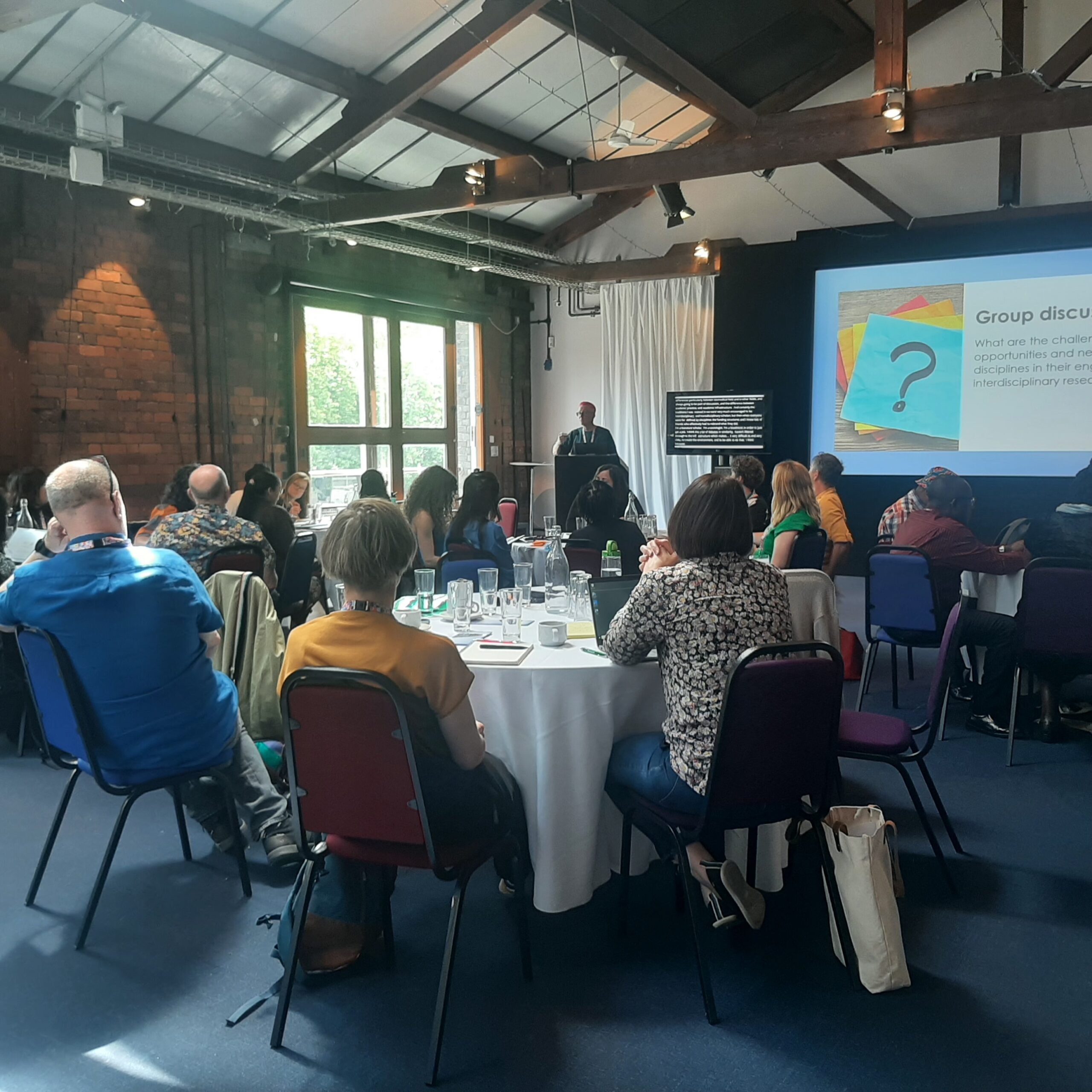
Unusual Spaces of Care and Caring: Diemo reflects on the Wellcome Trust Symposium
On the first day of the symposium, we were tasked with co-creating a ‘contract of care’, where we shared with each other what we hoped to gain from the space and what we would like to contribute to the space. From the onset, this established the symposium as a safe space.
Often, we associate care with ease, satisfaction and comfort. Taking part in the discussions opened my eyes to the fact that care can also be found in moments of unease and discomfort. Sitting through frank conversations, views and questions delivered without judgement as we discussed topics such as inclusivity, transdisciplinarity, ethics, self-care and pushing the boundaries of traditional research methodology allowed me to reflect more critically on my own preconceived notions of what it means to be inclusive and ethical, to care for myself and to care for others. In the process of thinking through the issues raised, I learned the value of holding myself accountable and demanding accountability from the spaces I occupy. Dan O’Connor (Head of Research Environment, Wellcome) and Jack Harrington (Head of Research Partnerships, Chatham House) brought this into focus during the keynote discussion when they challenged us to re-imagine the long-term social impact of our research, re-assess research culture and guard against mistaking equality for equity in our engagements.
Sharing common challenges encountered during the course of our projects – such as difficulties associated with navigating the bureaucracies of different institutions, applying for funding, working with vulnerable populations and supporting team members who are at different points in their careers – made me realise that care is also about collaborating, inventing, restoring, re-inventing and building with others to create a better world. And that is why spaces like the symposium are so important.
During her session on storytelling, Furaha Asani emphasized the care that needs to be taken in the stories that we tell as writers and as knowledge producers. In an intimate session hosted in what was designated as the symposium’s ‘quiet room’ for relaxation and general time-out, Furaha discussed our responsibility to speak the truth about ourselves while also maintaining a keen awareness and sensitivity to the realities of others. In the age of fake news and clickbait headlines, she urged us to take responsibility for the stories that we tell. To think more carefully about what these stories mean and whether or not we are the best people to tell them. Doing this would allow us to model to the next generation of storytellers critical writing skills that (hopefully) do more good than harm.
The quote below from Tricia Hersey (American poet, performance artist and activist) captures by far my biggest takeaway from the symposium.
“To rest in a capitalist world takes practice and meticulous care.”
Tricia Hersey, Rest Deck: 50 Practices to Resist Grind Culture
The importance of rest, but also the acknowledgement that we do not prioritize rest as much as we should, resonated with many people in the room. Engaging in reflective writing, meditation and visioning exercises at the symposium helped me to understand that choosing to rest is a form of resistance against grind culture. In her writing, Tricia Hersey explains that exhaustion comes from scarcity, whereas rest comes from a place of abundance and the need to honour the divinity of our bodies. She asserts that rest is our birthright. It should not be thought of as a privilege or something that needs to be earned, despite what the capitalist system would lead us to believe. Taking part in the symposium brought home to me the fact that we need to take good care of ourselves before we can even think about taking care of others.
Personally, the cards from the Rest Deck provided at the event have become part of my daily meditation practice. Though prioritizing guilt-free rest is very much still a work in progress for me, sitting down to read a card every morning while having my coffee has enabled me to redefine what rest means to me. I have found myself making a conscious effort to engage more with the outside world – be it through walks, community activities or hobbies outside of the home. This may not have happened had I not been carefully guided and given the tools to gently begin disentangling myself from harmful notions about productivity.
The emphasis on care also spoke to how, in mentoring and supporting early career scholars as envisioned by the Re-imagining Reproduction project, attention and support should also be directed to the individual as a whole as much as it is invested in their academic achievements.
The vibrant city of Bristol was the ideal location to have important conversations about wellbeing, support and building community. It was a privilege to learn about the innovative projects being undertaken by other Wellcome-funded teams. Being exposed to their work and sharing our own lessons from the Re-imagining Reproduction project once again reminded us of the importance of doing the work that we do.






